[vc_row][vc_column][vc_column_text]
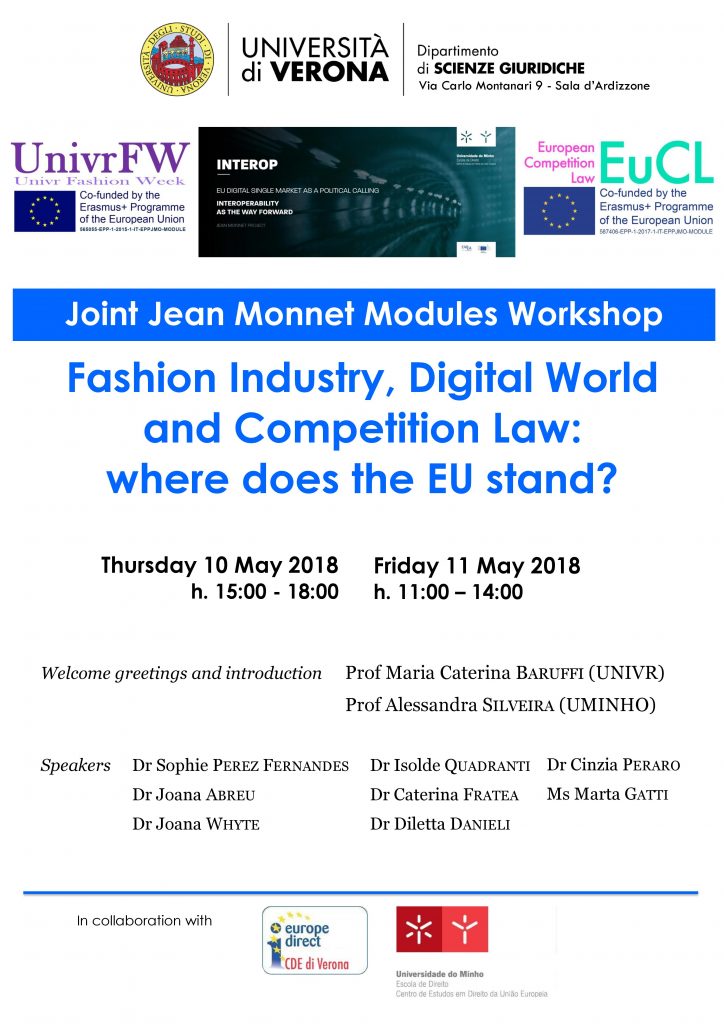
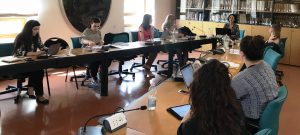 On 10 and 11 May 2018, the Law Department of the University of Verona hosted the Joint Jean Monnet Modules Workshop on “Fashion Industry, Digital World and Competition Law: where does the EU stand?”, co-organised by Prof Maria Caterina Baruffi (UNIVR), jointly with Prof Caterina Fratea (UNIVR) and Prof Alessandra Silveira, Director of the CEDU (Centro de Estudos em Direito da União Europeia) of the University of Minho (Braga, Protugal).
On 10 and 11 May 2018, the Law Department of the University of Verona hosted the Joint Jean Monnet Modules Workshop on “Fashion Industry, Digital World and Competition Law: where does the EU stand?”, co-organised by Prof Maria Caterina Baruffi (UNIVR), jointly with Prof Caterina Fratea (UNIVR) and Prof Alessandra Silveira, Director of the CEDU (Centro de Estudos em Direito da União Europeia) of the University of Minho (Braga, Protugal).
They represent the Jean Monnet Modules “Univr Fashion Week” and “European Competition Law” and the Jean Monnet Project “INTEROP”, respectively.
Young researchers actively participated and presented different topics, exchanged views and debated on various issues related to the fashion industry, the digital evolution and impact on competition law. Among them, Isolde Quadranti (Documentalist Head of the European Documentation Centre – EDC of Verona) and Diletta Danieli (PhD in EU Law) attended the event, where also law students participated.
In particular, Prof Maria Caterina Baruffi welcomed the Guests Speakers and presented the Workshop by pointing out the overwhelming interplay between the fields of fashion industry, digital world and competition law in light of the legislative and jurisprudential developments.
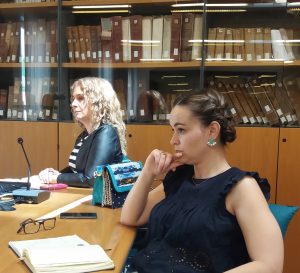
Prof Alessandra Silveira deeply addressed the digital evolution that legal scholars and practitioners need to face. Not only the transformation brings innovative methods but also it calls for appropriate and up-to-date skills for the management of new high-tech tools and data in line with the new Regulation on data protection (GDPR). Especially in the era of online social platforms, awarness on the protection of our data and rights shall be knowingly increased. Prof Silveira also referred to the artificial intelligence (AI) and robotics, that, as observed by the European Parliament, are jumping into our lives giving raise, among other aspects, to legal issues. According to her opinion, we are evolving in “e-people” and such a scenario requires a “technological sustainability”.
The floor was then given to the young researchers. Sophie Perez Fernandes (Assistant Professor in the Law School of UMINHO) intervened by highlighting the nature of “fashion” as part of the “European cultural heritage”, that presents common needs and challanges across Europe. The role of technology within the civil judicial cooperation was addressed by Joana Abreu (Assistant Professor in the Law School of UMINHO), who shared her experience as member of the Expert group on Modernisation of Judicial Cooperation in Civil and Commercial Matters. She underlined that national systems for legal proceedings shall be digitally integrated fully benefitting from the tech-evolution and also referred to the project “e-CODEX”.
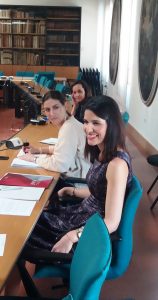
Digital evolution also bears an impact on competitive dynamics. Joana Whyte (Associate Lawyer at SRS – Sociedade Rebelo de Sousa & Advogados Associados, Collaborating member of CEDU) was particularly enganged on the topic and analysed the case-law, especially the Coty case on the protection of luxury goods in the context of e-commerce. She raised questions related to the scope of application of the Coty-ruling and the vertical restrictions. Caterina Fratea (Researcher at the Law Dept. of UNIVR) more broadly commented the interrelationship between competiton rules and e-commerce platforms. Cinzia Peraro (PhD in EU Law and Research Fellow at the Law Dept. of UNIVR) moved to consumer protection in the digital world, also in relation to the e-commerce and social network platforms. Issues related to the quality of products and fair terms and conditions need to be carefully managed in the digital fashion environment.
Joana Abreu added comments with regard to the digital interoperability, claiming the necessary evaluation of different aspects when dealing with digital communications, comprising also the social dimension. She especially argued the WIFI4EU project aimed at promoting internet connectivity in local communities. Not only high-quality digital tools need to be put in place, but also “digital training and education” shall be preliminary and constantly implemented.
Prof Baruffi and Prof Silveira concluded the workshop, that resulted in a intensive and comprehensive analysis of the main topics related to the relationship of the fields of fashion, digital evolution and competition.

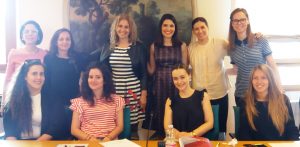
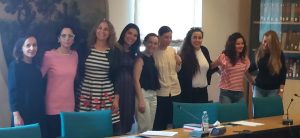 [/vc_column_text][/vc_column][/vc_row]
[/vc_column_text][/vc_column][/vc_row]
